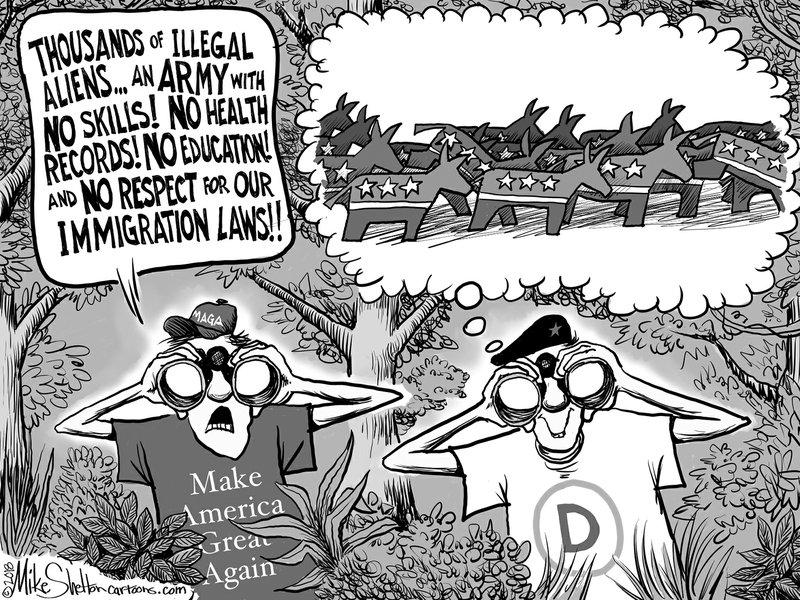I came across a post on FarceBook from a local candidate in this year's election. She expressed her fear of liberalism "flowing through our town." The only thing I see flowing in our town when I look out my downtown window is traffic and rain. More importantly, what does one have to fear from "liberalism" or, more specifically, "liberals?"
The word "liberal" was used pre-politically to refer to generosity, tolerance or one of noble status. But in the late 18th century the word was used in terms such as "liberal plan," "liberal system," "liberal ideas," etc. It was also used to denote those who supported liberties and rights for individuals. In 1776 Adam Smith wrote a book titled "The Wealth of Nations" in which he used the phrase "the liberal system of free exportation and importation" which he put forth as a way to prevent famines. Smith favored freedom of contracts in the labor market, which he wished would "rest on such liberal principles." He also wrote of "allowing every man to pursue his own interest in his own way, upon the liberal plan of equality, liberty, and justice." Some 50 years later, liberalism was associated with free trade, free markets, and limited government. Gee, that sounds a little like what the GOP used to stand for.
I do agree that liberalism today has broadened in scope, which most likely resulted in confusion. Some point to the fact that as America's influence expanded in the world, so did the projection of Americans as being "elitist" in their quest for spreading democracy, justice and equal rights. The majority of the hard lifting was being done by the more educated sectors of America, and they also tended to congratulate themselves on their achievements. The detractors of such progress, or those who "don't want things to change," often resented this attitude and so associated liberalism with education and progressive change.
Edmund Fawcett, a journalist, identified four key elements of liberalism. The first recognizes that society will always have conflict and such will produce competition and civil discourse. The second is that society is in flux, but the changes should work toward improvement. The third is a distrust in concentrated power. No one group, political party, or segment of society should have all the power. The fourth element is respect by power for the individual's personal and property rights.
Liberals today do not yearn for a Utopian society; their respect for individuals forbids it, even knowing that conflicts are inevitable. Conservatives lean toward stability and tradition but this can hinder progress. Reformers are more often identified as liberals, but liberalism today needs to reject identification with elites in order to accomplish reform for everyone. Liberal thinkers need to value religious and ethnic identities just as much as they wish for progress. Ironically, many liberals became conservatives in order to maintain a system in which they lived better than most others.
What distresses me most is the labeling of others such that no shades of gray exist. In fact, most liberals and conservatives actually have more in common than they realize. But because we have become so tribal, so intent on winning at any cost, we trivialize those commonalities and magnify our differences. I want our borders protected. I don't believe people should freely cross the border of another country without going through proper channels. But I also don't believe we should consider those trying to escape tyranny or violence as "rapists and criminals." Instead of using military strength against helpless families, let's get philanthropic organizations to meet the needs of those people at the border itself. Trump has said he wants to get tough on the countries that cause their citizens to become refugees. Let's see that put into real action. But let's not rip families apart or send children to camps to wait months for reunification with family. Fix the system such that refugees don't have to wait years for a decision on their fate. Streamline the path to citizenship.
Let's reform welfare. There are those who legitimately need help. Weed out the ones who abuse the system but not at the cost of removing the truly needy. Simple to state, but difficult to put into action. But just because an idea is perceived as difficult does not mean we should not make the attempt. Same can be said about healthcare, support for special needs, and veteran's health care.
But above all else, should not liberals and conservatives strive to discuss ideas without inflammatory language, insults, and emotional outrage?
-- Devin Houston is the president/CEO of Houston Enzymes. Send comments or questions to [email protected]. The opinions expressed are those of the author.
Editorial on 10/31/2018
